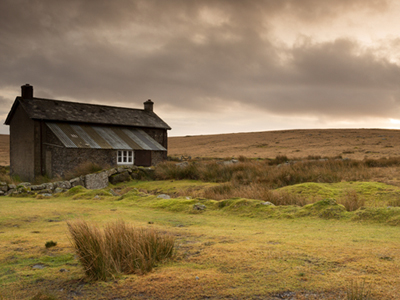Need to know: Buyers searches
Buyers searches on farms and estates are crucial to finding out everything you might want to know about the land before you take it over


Pre-contract searches are what you carry out before you exchange on a property, to ensure that the property is as described and that there are no problems that could affect either its value or your intended use of it. You are also checking to ensure that you are not unwittingly taking on any liabilities such as existing environmental pollution. Although your solicitor should guide you, it is always useful to understand where one is being guided and the below is intended as a canter (gallop?) through the searches you are most likely to consider.
If you are funding the purchase either in whole, or in part, with a mortgage, then the lender will mostly likely proscribe what searches you must carry out and there is little arguing with them - this is to protect their interest, should you default and they need to sell the property to recoup their money. Unfortunately, lenders are becoming increasingly cautious and their requirements commensurately more onerous. Further, most require that searches must have been carried out within the 6 months prior to completion and if they go past their sell-by-date, you will need to renew them ... at your own cost.
If you are a cash buyer, however, then it is up to you what searches you carry out and in this case, the nature of the property and any specific concerns will be your guide. Below is a run through some of the searches you might consider.
Even if someone is familiar with the property, there are some searches that I would still consider vital: first, a search of the index map at the Land Registry to determine whether the property is registered and if so, with what title number/s. Although the seller's solicitor must supply you with the seller's title to the property, the larger the property, the easier it is to miss out title numbers, give the wrong ones, or even include land actually owned by someone else!
Secondly, a Local Authority search. This will set out the planning history (including breaches), tree preservation orders, compulsory purchase orders, listing designations, conservation areas and so on - you see why they are useful. There are also a number of optional (‘part 2') enquiries and with rural property as a minimum, the enquiries requesting information on footpaths or bridleways and pipelines crossing the property should be ticked. A note of warning; although it varies between authorities, the speed of return of these searches is usually glacial, so do not leave them until the last minute.
Thirdly, I would usually recommend a drainage and water search with the relevant statutory undertaker, unless it is either bare land (with no water troughs), or it is clear that the property is on a private water and drainage supply. Even so, it may be useful to find out where the nearest main is, if you are considering connecting. If land is unregistered, you should (must) also carry out a Land Charges search, as this will reveal matters such as wayleaves, that might not be obvious from the title documents, but which bind the property and will need to be disclosed on the first registration of it.

* Subscribe to Country Life and save
Exquisite houses, the beauty of Nature, and how to get the most from your life, straight to your inbox.
Other searches which I would consider optional, depending on the property (but which a bank usually considers vital) include: mines and minerals searches. Although less relevant in areas with no known mining history do remember, however, that mining does not just mean coal and might mean tin, lead or brine.
Commons and village green searches are also pretty important and can be added on as a part 2 enquiry to your local authority search, but if you are particularly concerned, I would carry out a specific search to reveal as much information as possible. Chancel liability searches are controversial: due to the difficulty in saying for certain whether there is a liability, most will reveal a ‘potential' liability and any lender will usually then require you to obtain indemnity insurance against that possibility (at further expense). The cost of the insurance can sometimes be put on to the seller (arguably it is a defect of sorts) and is worth trying, but usually premiums are not high and may have to viewed as an unavoidable cost of the purchase.
Environmental searches can be either very useful or a waste of time, depending on what you are buying - a small field of permanent pasture probably does not merit one. A large farm with known past industrial or chemical use either on site, or nearby, probably does. Most environmental searches also contain flooding information, but some information can also be obtained directly from the Environment Agency - again, ifthis is an area of concern, paying for a more detailed report is probably the answer.
Finally, pre-contract enquiries from your solicitors, which are (or should be) a tailor-made set of enquiries that will often give you the most useful information about the property, as they are answered directly by the seller or their land agent. They should cover all of the points covered by the searches above, in addition to what is actually included in the sale, information on any tenancies and other, more practical matters, such as responsibility for boundary maintenance. These often run to more than 20 pages!
As ever, the guiding maxim if that if there is something you are unsure of, or concerned about, raise it as a query and investigate it before you exchange ... not afterwards.
Despite being one who feels the cold, Elizabeth Earle moved to Northumberland and has worked there as a solicitor with the firm of Dickinson Dees LLP, in the Agriculture, Farms and Estates Team, where she started life as a trainee in 2003.
As part of this specialist and nationally renowned team, she works both for a number of larger estates, organisations and trusts on an ongoing basis and also acts on one-off matters, covering the range of rural property law, including; sales and purchases, sporting rights, rights of way, easements and tenancies, to name a few.
Outside the office, she nearly managed to get sent to the North Pole, occasionally hunts with the CVNNH and is currently working on improving her marathon time. She lives with her husband and two dogs.
Country Life is unlike any other magazine: the only glossy weekly on the newsstand and the only magazine that has been guest-edited by His Majesty The King not once, but twice. It is a celebration of modern rural life and all its diverse joys and pleasures — that was first published in Queen Victoria's Diamond Jubilee year. Our eclectic mixture of witty and informative content — from the most up-to-date property news and commentary and a coveted glimpse inside some of the UK's best houses and gardens, to gardening, the arts and interior design, written by experts in their field — still cannot be found in print or online, anywhere else.

